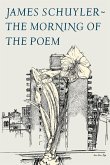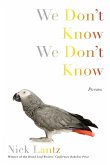A wild, masterful Pulitzer Prize-winning cycle of poems that half a century later still shocks and astounds John Berryman was hardly unknown when he published 77 Dream Songs, but the volume was, nevertheless, a shock and a revelation. A "spooky" collection in the words of Robert Lowell-"a maddening work of genius." As Henri Cole notes in his elegant, perceptive introduction, Berryman had discovered "a looser style that mixed high and low dictions with a strange syntax." Berryman had also discovered his most enduring alter ego, a paranoid, passionate, depressed, drunk, irrepressible antihero named Henry or, sometimes, Mr. Bones: "We touch at certain points," Berryman claimed, of Henry, "But I am an actual human being." Henry may not be real, but he comes alive on the page. And while the most famous of the Dream Songs begins, "Life, friends, is boring," these poems never are. Henry lusts: seeing a woman "Filling her compact & delicious body / with chicken páprika" he can barely restrain himself: "only the fact of her husband & four other people / kept me from springing on her." Henry despairs: "All the world like a woolen lover / once did seem on Henry's side. / Then came a departure." Henry, afraid of his own violent urges, consoles himself: "Nobody is ever missing." 77 Dream Songs won the Pulitzer Prize in 1965, but Berryman's formal and emotional innovations-he cracks the language open, creates a new idiom in which to express eternal feelings-remain as alive and immediate today as ever.
Hinweis: Dieser Artikel kann nur an eine deutsche Lieferadresse ausgeliefert werden.
Hinweis: Dieser Artikel kann nur an eine deutsche Lieferadresse ausgeliefert werden.









